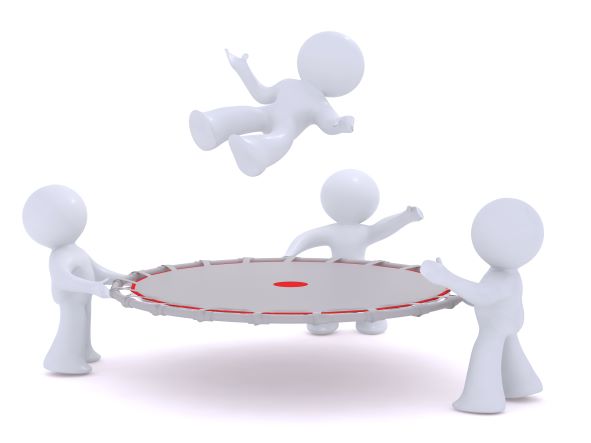Breaking The Stigma: Understanding Addiction In Single Mothers
As a UK-based women’s health, addiction and recovery expert with first-hand experience, I want to draw attention to the overlooked yet significant problem of addiction in single mothers. While it’s true that single motherhood can bring many challenges, when you add habit into the mix, it can be overwhelming for all involved. This is why it’s so important to tackle the stigma around this issue and support those who need it, starting with understanding the root cause of addiction in single mothers.
These stigmas can be based on stereotypes such as being run down, unkempt, dole-bludging, irresponsible, exhausted, and possibly drug-addicted. This can lead to a lack of access to substance abuse treatment due to the fear of judgement or discrimination. Studies have explored the experiences of substance-using mothers as they navigate health and criminal justice consequences and access needed treatment, as well as the lived experiences of adult children of parents with SUDs growing up in this environment.
Parents have also discussed the impact these stereotypes have had on their self-esteem. Breaking the stigma surrounding addiction in UK single mothers requires understanding how these stigmas are formed and how they affect individuals. It is essential to recognise that addiction is a medical condition that requires treatment rather than judgement or discrimination.
For too long, single mothers have been judged and labelled as ‘bad parents’, which is simply not true and further isolates them from much-needed help. But when we look closer at the bigger picture, we can see that underlying issues such as poverty, trauma or mental health problems often contribute to their situation. These issues can lead to an increased risk of developing an addiction problem that can be difficult to overcome without the proper support and guidance.
Myths And Misconceptions Debunked
Addiction is an insidious disease that affects all demographics regardless of age, gender, or lifestyle. Single mothers are no exception to this rule – substance use, drug addiction, alcohol addiction, and substance abuse disorder can also affect them.
There are many myths and misconceptions surrounding single mothers and addiction in the UK. One of the most widely-believed misconceptions is that women’s behaviour causes domestic abuse.
The truth is that single mothers often face unique challenges when it comes to their battle with addiction. They may feel ashamed or embarrassed about their situation; they may feel like they are not living up to societal standards, or they may feel isolated from other families who do not understand their struggles.
Single motherhood does not have to be synonymous with addiction – understanding the underlying causes of the problem can lead to more effective treatment options and tremendous long-term recovery success.
The Paradox Of Being a Single Mother in Recovery
The paradox of single mothers and addiction is a grim reality that often goes unnoticed and ignored in society; I have seen first-hand how difficult it can be for single moms to seek help for their addictions. Here are three critical aspects of this complex problem:
- Single mothers need to understand their mental health needs are just as important as any physical health concerns they might have. Mental health issues can make substance abuse harder to overcome because they increase the risk of relapse. Drug treatment programs should address psychological and physical issues to ensure long-term recovery.
- There is no “one size fits all” solution regarding drug treatment. Individuals are different and will require tailored support based on their needs and circumstances. Accessing specialist care can be difficult for many single mothers due to limited resources or lack of transportation options, so finding an accessible program that provides the correct type of help is essential.
- Single mothers should also remember that recovery from addiction isn’t just about abstaining from drugs or alcohol – it’s about rebuilding relationships and repairing trust with those around them. Achieving sobriety involves more than just avoiding substances; it requires addressing core issues related to mental health and relationships, which only come with time and effort.
It’s time we stop sweeping this issue under the rug – after all, these women are somebody’s daughter, sister or friend – they deserve our understanding and compassion. And with that understanding comes a greater appreciation of the complexity of this problem – one which requires specialised solutions if lasting change is going to be achieved.
Society’s Attitudes Towards Single Mothers And Addiction: Why They Need To Change
Society’s attitudes towards addicts are often harsh and unsympathetic, making it difficult for women to battle substance use disorder or drug abuse in a healthy, supportive environment.
Society’s attitudes towards single mothers and addiction need to change to better support those affected by SUD. Studies have revealed patterns that significantly influence child development and the likelihood that a child will struggle with emotional, psychological, and behavioural issues.
This stigma is problematic because it perpetuates shame; some single mothers may be reluctant to seek treatment out of fear that they will be deemed unfit parents and have their children taken away by the government. This sense of shame also affects how mental illness is treated in society – for example; undiagnosed depression might go untreated if people are too embarrassed or scared to speak up about their feelings.
Social attitudes towards single mothers and addiction need to change drastically so that women can get the support they need without feeling judged or stigmatised. Addressing this issue requires empathy and understanding from all sides – friends, family members, and society – so we can create a safe space for these women to start on the path towards recovery.
Addressing The Root Causes
Single mothers and addicts are often intertwined, but society stigmatises their situation.
Studies have shown that single mothers are more at risk of developing substance use disorders than their counterparts due to high-stress levels and limited relief; the reality is that addiction can be deeply rooted in many factors, and for single mothers, these can include poverty, domestic violence, and trauma. To change how we view single motherhood and addiction, we must first address the root causes.
Michael Garnham of Compare Rehab says: “addressing the underlying issues associated with single motherhood and addiction can be daunting. But by providing access to effective treatments while also recognising the importance of social support systems, it’s possible to create a foundation for success that helps single mothers break free from stigma and ultimately progress on their recovery journey.”
Navigating The Challenges Of Recovery
Navigating the challenges of single mother addiction recovery is an arduous journey with unpredictable obstacles. As a UK-based women’s health, addiction, and recovery expert, I speak from first-hand experience that this can be a taxing endeavour. To make matters worse, many drug use and treatment services are not accessible to single mothers due to financial or social limitations.
Nevertheless, there is hope! By understanding the underlying cause of alcohol dependence and withdrawal symptoms, family members and loved ones can help support single mothers in their addiction recovery journey. This begins with recognising that addiction is often caused by mental illness or trauma and requires comprehensive care that goes beyond what traditional treatment services offer.
Supporting single mothers in addiction recovery requires the following:
* Acknowledging the value of self-care:
* Creating healthy habits like nutrition and exercise
* Seeking professional counselling for trauma
* Reducing stress through yoga and meditation
* Accessing resources tailored for single mothers:
* Finding support groups to share experiences with others who understand
* Connecting with legal organisations to protect rights as a single parent
* Utilizing online resources for education on addiction treatments
* Establishing trust between family members:
* Building small moments of positive reinforcement when possible
* Encouraging communication of thoughts and feelings without judgement
* Investing time into developing close relationships between family members
These strategies can provide a strong foundation for helping single mothers overcome their addictions while addressing issues like mental health and trauma. With this approach, they can reclaim their lives free from the shackles of addiction.
Support, Resources & Strategies
Recovery requires a solid and unwavering commitment to yourself and any treatment program you may follow. But it’s not impossible – with the right resources and strategies, single mothers can find their way through the darkness of addiction and into a life of recovery.
When it comes to finding resources, here are five key steps that I recommend:
- Explore treatment options: Many addiction recovery programs are available, including inpatient and outpatient treatments. Consider what type of care would best meet your needs.
- Look for co-occurring disorder help: If you have mental health issues besides substance use disorder, look for programs that offer dual diagnosis treatment.
- Attend Alcoholics Anonymous meetings: Participating in AA meetings can provide valuable support to other individuals recovering from addiction.
- Educate yourself on drug misuse: You should know the signs of relapse and how to avoid them to stay on track with your recovery journey.
- Seek out professional addiction counselling services: Professional counsellors can provide invaluable guidance on how to cope with cravings and manage stress during recovery.
These five steps will provide a solid foundation for single mothers as they embark on their journey of addiction recovery. With the right resources, strategies, and dedication, these women can make tremendous progress towards reclaiming control over their lives. The next step is learning how to overcome stigma and find support as a single mother in recovery – an essential part of the process that cannot be overlooked if true healing is going to take place.
Creating A Support System:
When it comes to single mothers and addiction, it’s important to note that there is no one-size-fits-all solution. Recovery for any young woman struggling with addiction requires a tailored approach, considering her individual needs. Creating a support system that helps her navigate the complexities of addiction is essential to achieving successful long-term recovery.
Enrolling in a support group provides an additional layer of emotional and moral support while establishing accountability, which can be invaluable in recovery journeys. For those who cannot afford to pay for private therapy or classes, free online resources and many government-funded programs are available to aid single mothers on their path to recovery.
At its core, successful recovery from addiction involves building effective communication channels between the recovering individual and their support network. This includes family members, friends, therapists and other professionals who may be interested in helping the young woman break free from the grips of addiction. By developing trust within this network and creating an open dialogue about progress and setbacks during the recovery process, single mothers are more likely to experience positive outcomes over time.
The Impact Of Addiction On Children
Addiction in single-mother households is like a wave crashing against the shore – relentless, destructive, and overwhelming. It can devastate children and families, leading to poverty, legal implications, social exclusion and mental health issues:
- First, there is the obvious financial burden that comes with addiction. Single mothers are likely to be living pay check to pay check and unable to manage rising costs due to drug or alcohol use. This can quickly lead to poverty, creating stress for family members.
- Second, legal problems can arise when single mothers cannot manage their addictions responsibly. For example, if they fail to turn up for court hearings or ignore restraining orders, this can create further consequences such as incarceration or fines. Single mothers must also contend with societal stigma, which adds an extra burden to cope with their addiction in private.
- Third, many single-mother households face isolation; they may frequently move into new areas where they don’t have access to support networks or services that could help them cope with their addiction. This often leads them to feelings of loneliness and helplessness that prevent them from seeking help to heal from the trauma associated with their substance abuse disorder.
- Fourth, single mothers may struggle with mental health issues due to their addiction; depression, anxiety and post-traumatic stress disorder (PTSD) can all be linked back to substance abuse disorders which can make it even harder for the mother and her family members to get through each day without succumbing further into despair.
- Finally, children living in single-mother households affected by substance abuse are likely faced with educational challenges and emotional difficulties stemming from neglect and instability in their home environment. They may have trouble forming relationships outside of the home if they lack appropriate role models who provide positive guidance and support during times of crisis.
The Long-Term Effects On Single-Mother Households
The long-term effects of addiction on single-mother households are often overlooked. As a UK-based women’s health, addiction and recovery expert, I have seen first-hand the devastating consequences that addiction can have in this demographic.
For single mothers, being faced with the challenge of balancing family life and addictive behaviour comes with an immense emotional burden. Not only does it take a toll on their own mental and physical health, but it also affects the children living in their homes. It is not uncommon for these children to become isolated from society due to feeling ashamed or confused about the actions of their parents. The sense of insecurity which follows can lead to depression, anxiety and even substance abuse later in life, creating a vicious cycle which can be hard to break without professional help.
The consequences of addiction are far-reaching and often long-lasting. It has been found that parents using substances are more likely to have difficulty providing adequate care for their children due to a lack of focus or motivation, which frequently results in social services becoming involved and ultimately removing the child from the home environment. This can leave both mothers and child feeling rejected and hurt, scarring them emotionally for many years.
Effective prevention is essential when dealing with this issue so that families do not struggle alone with no support system. Without assistance, there is a risk that generational cycles will continue, entrenching poverty and causing untold suffering within our communities that could otherwise have been avoided.
The Trauma Connection
Addiction is a complex issue and one that often has its roots in trauma. Too often, this topic goes unheard, with single mothers struggling silently with substance abuse, feeling ashamed and alone. It’s time to break the stigma and start discussing the connection between trauma and addiction in single-mother households.
When we talk about trauma, it can mean many things; physical or sexual abuse, poverty or neglect, homelessness or domestic violence. All these experiences can profoundly impact women and their families, leading them into a path of addiction and a cycle of despair that’s hard to escape. Sadly, this is all too common for single mothers who are already dealing with financial hardship and social pressures on top of parenting alone.
We must recognise the effects of trauma on women’s lives and understand how it can manifest itself as an addiction. We can make a real difference in their lives by understanding why single mothers turn to substances as a coping mechanism and learning how to support them through recovery without judgement or shame.
Overcoming Societal Misconceptions And Finding Success
I have seen first-hand how single mothers are disproportionately affected by substance abuse.
Take, for example, Denise (not her real name). She was a single mother in her late thirties with two young children. After years of struggling with physical and emotional abuse from her partner, she had finally taken the courageous step of leaving him – but found herself increasingly turning to alcohol to cope with the trauma. She was desperate to break free of her alcohol dependence but felt ashamed to seek help because she feared judgement from family, friends and society.
The truth is that many single mothers suffer silently from addiction due to its stigma. We must understand the connection between trauma and substance abuse so these women can access the support they need without fear or judgement. We must also educate ourselves about addiction to overcome misconceptions about single mothers struggling with this issue. By doing this, we can create a safe environment where these women feel comfortable seeking help and ultimately finding success in their recovery journey.
This isn’t just limited to single mothers; anyone facing an addiction should be allowed to get back on their feet without prejudice or judgement from others. Individuals must receive appropriate treatment tailored to their unique needs – therapy sessions, medication or support so they can break free from their addictions and lead healthier lives.
Conclusion
Let’s work together to tear down the barriers around addiction in single mothers so that they can find hope, healing and positive outcomes in their recovery journeys!
There is no doubt that addiction and single motherhood can be difficult to manage. The physical, emotional, financial, and social challenges can seem overwhelming. However, it is essential to remember that many resources are available for single mothers struggling with addiction.
Having a solid support system of family and friends is essential. It is also crucial for single mothers to have access to mental health professionals who can help them understand their trauma and provide tools for dealing with stress and substance abuse.
Finally, it is vital to remember that recovery from addiction is possible and that healing is within reach. Single mothers should never feel ashamed or isolated in their struggles; they are not alone. They can overcome their addiction and live healthy lives with proper support. So the real question becomes: What steps will you take today to make your journey towards recovery easier?









